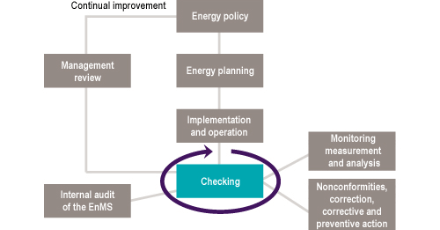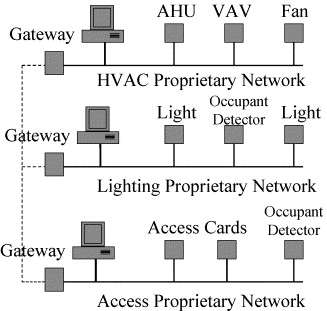Are Bill Payment Services a Part of Your Utility Management Plan?

Corporate utility management strategies should include two basic components: effective utility billing data collection and organization; and finding ways to use that information to become more efficient and reduce cost. If you are not using a third party bill payment partner today to handle your data collection and organization, you should take a look at what they can offer. For the purposes of this blog we will be focusing on electric utility billings but the principles apply to all utility types.
Strong Data Management and Energy Management Systems

More and more extreme weather conditions have raised fears for coming climate change impacts around the globe.
Security Deposit Audits and Reducing Obligations

Utilities are a part of many aspects of our lives; they power our homes and businesses, and are used as the source of basic necessities such as water and heating. However, our increasing demand for limited resources like electricity, water, and natural gas are driving utility prices higher. In effect, some consumers are having trouble managing their utility expenses, and ultimately, default on paying their utility bills. This blog shares some insight on how to better manage payment of utility costs, and particularly explains what consumers can do about the security deposits of their utility bills.
LED Lights: A New Way to Sustainably Brighten the Holiday Season

In the past, holiday lights were incandescent bulbs encased in painted glass. They were large, fragile, and their colors would fade with age. Luckily, today there is a safer and more efficient lighting option to brighten your holidays — LED lights. LED lights are quickly replacing incandescent bulbs due to the numerous benefits they offer consumers with regard to electricity usage, durability, safety, versatility, and environmental footprint. Now you can decorate for the holidays using sustainable, energy-efficient LED lighting.
How to Balance Corporate Sustainability and Financial Stability

In this age where corporate sustainability has been moving to the core of the business realm andseveral macro trends shift the nature of global economic activity, organizations and managers must recognize the need to include sustainability and environmental engagement (disclosure for instance) in their decision-making process.
Capitalizing on Energy Efficiency Solutions

Governments and companies have the same objective in mind when it comes to energy efficiency. Create policies, projects and measures all designed to mitigate climate change, save the environment and reduce energy consumption and costs. The main difference is in their execution. Companies implement their energy efficiency plans within their operations while governments can either do it within city limits or go beyond state boundaries. They then turn a policy or project into a nationwide endeavor, or even an international one. The key is finding the right kind of energy management program that would best suit your needs to better attain the objective.
Energy Management Systems: Using Technology to Save on Costs

Recently, many businesses have come up with several significant trends of energy efficiency.
Becoming Leaders in Energy Efficiency Solutions

Whether you represent an organization, a community or a government, it is very possible to become a leader in energy efficiency. However, in an effort to do so you must create projects meant to generate more energy using renewable or sustainable resources and to consume less of what is available. This is something that every organization should be involved in if we have any chance of reducing or mitigating our environmental impact on the Earth – land, water and air.
Renewable Energy Management: Creating Jobs with Clean Energy

Politicians take heed: Those who support the green economy will be remembered in history as heroes! Government leaders should not delay any longer in adopting legislation that facilitates the implementation of renewable energy production.
Data Energy Management of the Industrial Sector

Let’s face it! Among the major sectors of the economy, the industrial sector consumes the most amount of energy. Many of the organizations that make up this sector belong to high energy consuming industries such as manufacturing, mining, construction and agriculture. That being the case, it only follows that energy-related data from this sector would be immense.
Preparing for Revolutionized Energy Management

Energy efficiency plays an important role in mitigating climate change and its impacts. By powering more machines and accomplishing more tasks for the same amount of energy, and by using less fossil fuel-generated energy, greenhouse gas emissions can be reduced. In addition to reducing an organization’s carbon footprint, energy efficiency also contributes to the sustainability of an organization by reducing its operational costs.
Reduce Your Company’s Carbon Footprint with Green Technologies

Green technologies serve green purposes for the long term, especially when they involve clean energy.The most common example for green technology in this category is the solar cell. From its humble beginning when inventor Horace-Benedict de Saussure harnessed the power of the sun to create a solar oven, up to the present day where solar power is harvested by photovoltaic cells and converted into electricity; the idea of using sustainable and renewable energy sources as opposed to burning finite fossil fuels is what drives green technology.
Increasing the Pace for Energy Efficiency Solutions

Energy efficiency is one of the cheapest and most cost-effective means of reducing environmental impacts. Not only does it help ease the strain of limited power supply, but it also helps reduce greenhouse gas levels.
Climate Action Plan: Revitalizing the Energy Industry

On June 14th, 2013 US President Barack Obama delivered a strong message to the American public as well as to the rest of the world: strong, proactive action on climate change needs to be taken now.
Challenges Implementing Intelligent Building Energy Management-Part 2

In previous blogs I discussed the challenges of carbon reduction through less energy use in our buildings. As such, business owners need to recognize that in addition to being green and reducing energy use, they can produce energy on-site and connect to a Smart Grid, among many other things. Buildings that go beyond reducing energy use and pursue new objectives, such as producing energy on-site (e.g. via solar panels) and connecting to a Smart Grid, is just one of the many ways in which a building transforms from being merely green to being intelligent. The Continental Automated Buildings Association (CABA), a non-profit industry association dedicated to the advancement of intelligent home and building technology, recently released their Frost & Sullivan research study titled, “Intelligent Buildings and the Bid-Specification Process”. I will be summarizing this study in two parts: the previous blog discussed the problem, while this one provides further information on the challenges as well as a few suggested solutions.
Challenges Implementing Intelligent Building Energy Management-Part 1

Does Energy Management Reduce Costs?

Sub-Metering – Effective Energy Management With Cost Reduction
Each month, every building receives an electricity bill. Although the payment of this bill is vital for a company to continue operating, it contains numerous tidbits of information that are entirely useless to the reader. For instance, “Regulatory Asset Recovery Rate Rider” is provided on the bill, but what does this mean to a restaurant owner? What value does your electricity invoice provide you except a payment amount and due date? One thing about electricity and other utilities, unlike anything else we purchase, is that we pay for utilities after we have consumed them, without knowing how much we consumed. Deploying an electricity sub-metering system will help you understand where your electricity costs are coming from and help make sense of your bill and why you are paying so much.
The Golden State Goes CalGreen: Lighting Energy Efficiency Solutions

Improving Energy Management: Do We Need Higher Electricity Prices?

Nobody likes to see price increases, especially in times of low inflation, but it is a good thing for electricity rates. In fact, it may even be a necessity if you are living in Canada or the United States and want to continue enjoying the conveniences that electricity provides. Higher electricity prices would help pay to modernize the grid, making it more efficient and able to meet the needs of current and future electricity demands.
Using Solar Panels to Improve Energy Resource Management

As detailed in the Leadership in Energy and Environmental Design (LEED) reference guide for Green Building Design and Construction (click here for the free 2009 version), use of renewable energy in lieu of fossil fuel-based energy can dramatically improve outdoor environmental quality. Generating renewable energy on-site is an excellent way to reduce the negative environmental impacts associated with a building’s energy use.
Integrating Renewable Energy and other Distributed Energy Resources

In a previous blog post, the good (non-fossil) and bad (intermittent production) aspects of traditional renewable energy options (renewables) that produce electricity from photovoltaic (PV) panels and wind and water turbines were discussed, as well as thermal solar collectors that are used to produce hot water either for immediate use or that is stored for later use. In this post, the ways of combining the renewables with other energy production options at or near their point of use will be discussed.
The Truth about Renewable Energy and Energy Management

There are many truths and myths about renewable energy, energy management and their environmental impacts. I will address 5 general issues and their environmental implications. They can be summed up as:
Energy Management Consulting and LEED Techniques for Home & Business

Energy management consulting is a growing business in which consultants who specialize in energy management and efficiency assist businesses and homeowners in reducing energy use and in integrating energy efficient components into the business or home. Reduction of energy use has the twin benefits of saving money and reducing energy use. Both homeowners and business owners alike […]
Greening Your Company with Building Energy Management – The Next Low-Hanging Fruit

Without question, the greatest benefit to building energy management are the metrics that a good building management system provides to the operator and owner. Knowledge is king when it comes to energy management – decisions can be made with accuracy, results can be measured and tweaked, and performance in the long run is superior. Although a significant expense, regular […]
Sustainability Consultants & How Solar Reduces Carbon Footprints

The Measurement of Carbon Footprints Carbon footprint can be measured via a greenhouse gas emissions assessment. Once a carbon footprint has been measured, strategies can be implemented to reduce the carbon footprint. Although free carbon footprint calculators can be accessed online, a sustainability consultant, with the expertise and background in carbon footprints and offsets can provide information about how […]
3 Steps to Wind, Solar, and Renewable Energy Management in Your Sustainability Plan

How to Make it Easier to Comply with UK Mandatory Carbon Reporting?

Not wishing to sound flippant but the answer is simply, “Start Now!” Companies that are mandated by CRC Energy Efficiency Scheme are well versed in capturing their carbon data. This is the second real year; and these companies will have either engaged with a software provider, or they are still using Microsoft Excel sheets and perhaps looking […]
The Who, What, When, Why and How of UK Carbon Reporting & CRC Scheme

There are two carbon management schemes – The UK Government have closed the public consultation period to simplify the CRC Energy Efficiency Scheme and have recently opened the consultation period for Mandatory Carbon Reporting for the top 1,100 – 1,800 or so FTSE quoted companies. The CRC Energy Efficiency Scheme is in its second year with teeth. The previous years to some were considered the practice rounds. The first companies were fined for non-compliance in their 2010/11 submission – sharpening up the naysayers!
Mandatory UK Carbon Reporting & CRC Energy Efficiency Scheme

A Coordinated Approach or Confusion The UK government have closed the Public Consultation period to simplify the CRC Energy Efficiency Scheme (formally known as the Carbon Reduction Commitment) and recently opened the consultation period for Mandatory Carbon Reporting for the top 1,000 or so FTSE quoted companies. At FirstCarbon Solutions, we are watching the outcomes closely.